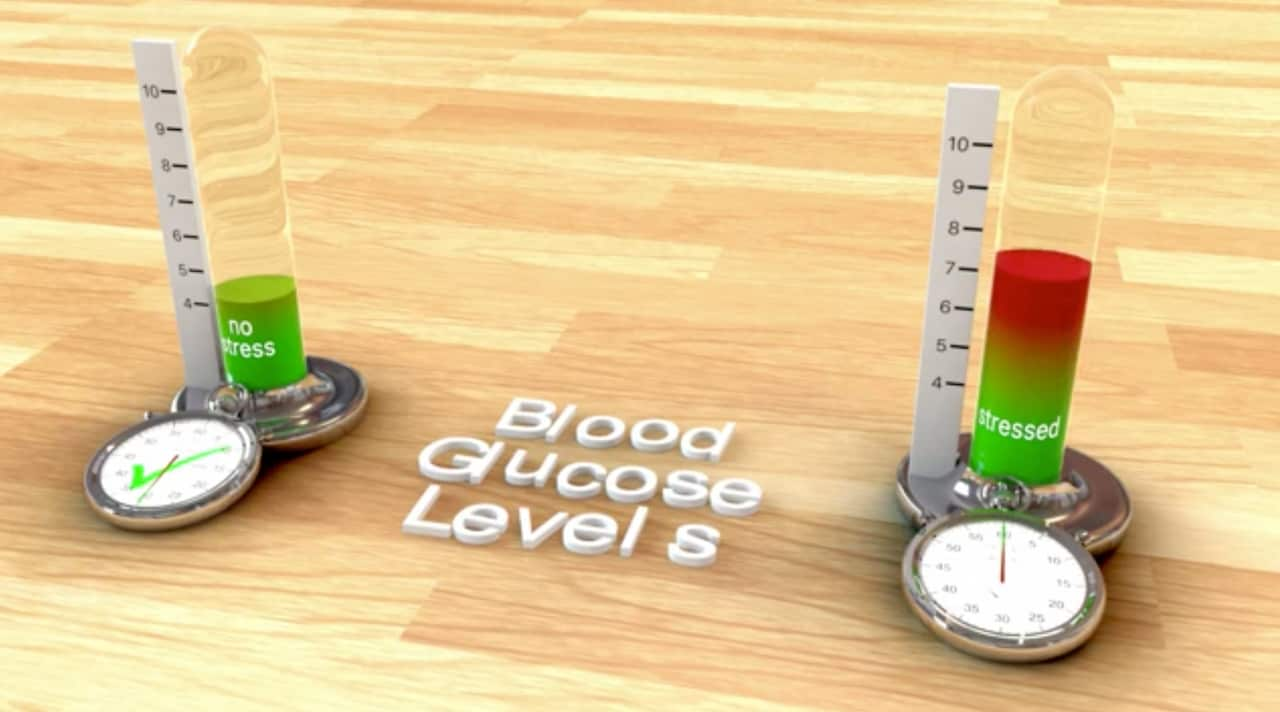This week on Michael Mosley: Trust Me, I’m a Doctor, Dr Giles Yeo, an expert in the study of obesity, looks at why stress can make you put on weight. A key culprit is the stress hormone cortisol, but there are things you can do to counterattack.
Cortisol: friend or foe?

In prehistoric times, cortisol kicked in to help us survive predators like the sabre-toothed tiger. Today, the hormone can cause serious damage. Source: Pixabay
On the good side, cortisol and its stress hormone sibling adrenaline are integral to our survival or "fight or flight" mechanism. It’s an age-old tool that primes our bodies for things like being chased by a sabre-toothed tiger across an icy tundra.
Produced by adrenal glands above the kidneys, cortisol - when it’s behaving itself - can help the body metabolise glucose, reduce inflammation and control blood pressure.
On the bad side, a deficiency of cortisol can cause muscle fatigue, chronic tiredness, nausea and vomiting, abdominal pain and weight loss.
Too much cortisol brought about by chronic stress can cause symptoms like thin skin; acne; facial hair growth and irregular menstrual periods in women; impaired learning, memory and sleep; major depressive disorder; anxiety; digestive problems; headaches; heart disease and… weight gain.
So what’s the connection between stress and weight gain?

An infographic from the show depicts how we retain high blood glucose levels when we’re stressed. Source: SBS
To be fair, cortisol is not the only thing to blame. When we become stressed, a suite of stress hormones, including cortisol and adrenaline acting on the ancient fight or flight response, cause the liver to release glucose into the bloodstream. That’s designed to provide us with muscle fuel to flee said sabre-toothed tiger chasing us around said icy tundra.
But we live in a different world. The modern age’s version of the sabre-toothed tiger is work, mortgages, relationships and any number of stressors. Rather than needing the energy to hotfoot it and replenish our stores, we’re often sedentary when dealing with the effects of stress.
Unless used immediately by our muscles, the blood glucose is stockpiled in other organs like the liver. But a good deal of it is used and stored in our fat - visceral fat around organs and our bellies being the worst kind.
The stress hormones released in our body – we’re looking at you, cortisol – still make us hungry for replenishment and eager to calm this most unpleasant of conditions, often with sugary and fatty foods.
Too much blood glucose in our bodies caused by chronic stress could lead to type 2 diabetes. As Dr Yeo discovers when he's plays guinea pig at the University of Leeds and is put through an unpleasant stress test using the latest technology, how long we retain high blood sugar levels when we’re frazzled is alarming. (You’ll just have to watch to find out exactly how long.)
How you can counter potential stress fat

Some Zen and sun can do wonders to de-stress. Source: Pixabay
Try and stay clear of sugary and fatty foods when you’re stressed
It's one of the hardest things to do when stress is trying its damnedest to magnetise you to these glorious foodstuffs. “Good luck with that,” we hear you say, but while the initial effect of chowing down junk food may be calm and comfort, you’ll only add to your stress with the extra inches added to your waistline. Don’t scoff (as it were), but try to have some healthy options on hand, like nuts, when you get the munchies.
Cut down on your coffee intake
Again, the echo of “good luck with that” rings out, but studies have shown caffeine can have a dramatic effect on cortisol levels. According to Shawn Talbert, PhD, author of The Cortisol Connection: Why Stress Makes You Fat and Ruins Your Health – And What You Can Do About It, around 200mg of caffeine (about two cups of coffee) increases cortisol in the blood by 30 percent within one hour.
He relays a study by the University of Oklahoma that found caffeine intake and the addition of stress leads to a spike in cortisol levels, which only increases with the additional caffeine we have throughout the day.
Actively reduce stress
Calm and focus the grey matter with mindfulness, meditation, or yoga, or just enjoy a massage. Get the endorphins going with some aerobic exercise, or some sun and fresh air outdoors with a spot of gardening or another pursuit. Social contact can also reduce stress, so organise a catch-up with a friend. We’ll leave caffeine intake up to your discretion.
Make good sleep a priority
Something of a catch-22 if stress is playing havoc with your sleep patterns - lack of sleep is a major stressor in itself. But prioritising a goal of healthy sleep is paramount, as science has proved.
Prevention reports that a study carried out by the University of Chicago found appetite, weight gain and the dreaded cortisol increase if you’re only getting an average of six-and-a-half hours of sleep each night. The recommended amount of sleep is eight hours.
Watch Michael Mosley: Trust Me, I'm a Doctor Mondays at 8:30pm on SBS. Missed the previous episode? Watch it at SBS On Demand:
Share


